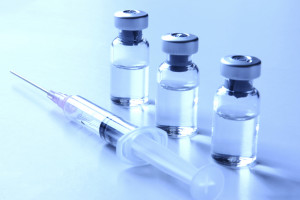 The National Vaccine Injury Compensation Program (VICP) provides a source of financial recovery for individuals and families affected by vaccine injuries. While the VICP is a federal government program, filing a successful VICP claim is unlike filing for benefits under more well-known programs like Social Security, Medicare and Medicaid. When filing a VICP claim, you must be able to prove your right to compensation and how much you are entitled to recover—and this makes it important to have an experienced vaccine injury attorney on your side. Continue reading
The National Vaccine Injury Compensation Program (VICP) provides a source of financial recovery for individuals and families affected by vaccine injuries. While the VICP is a federal government program, filing a successful VICP claim is unlike filing for benefits under more well-known programs like Social Security, Medicare and Medicaid. When filing a VICP claim, you must be able to prove your right to compensation and how much you are entitled to recover—and this makes it important to have an experienced vaccine injury attorney on your side. Continue reading
Tag Archives: Vaccine Court
How Hard is It to File a Successful Vaccine Injury (VICP) Claim?
 For individuals diagnosed with vaccine-related injuries and illnesses, securing just compensation is an important part of the recovery process. Not only can these injuries and illnesses be incredibly expensive, but they can also impact all aspects of a person’s life.
For individuals diagnosed with vaccine-related injuries and illnesses, securing just compensation is an important part of the recovery process. Not only can these injuries and illnesses be incredibly expensive, but they can also impact all aspects of a person’s life.
What Vaccine Recipients Need to Know Before Filing a VICP Claim
In most cases, securing just compensation for a vaccine-related injury or illness involves filing a claim under the National Vaccine Injury Compensation Program (VICP). How hard is it to file a successful VICP claim? Vaccine attorney Leah V. Durant explains: Continue reading
What is the Difference Between the VAERS and the VICP?
 When you or a loved one experiences a vaccine-related injury, filing a report helps the government assess the overall safety of the vaccines administered in the United States. Vaccine injury reports help agencies like the Centers for Disease Control and Prevention (CDC) and Department of Health and Human Services (DHHS) make informed decisions about future vaccine recommendations—and filing a report is one of the most important steps you can take to help protect yourself, your loved ones and others in the future. Continue reading
When you or a loved one experiences a vaccine-related injury, filing a report helps the government assess the overall safety of the vaccines administered in the United States. Vaccine injury reports help agencies like the Centers for Disease Control and Prevention (CDC) and Department of Health and Human Services (DHHS) make informed decisions about future vaccine recommendations—and filing a report is one of the most important steps you can take to help protect yourself, your loved ones and others in the future. Continue reading
Can You Get Complex Regional Pain Syndrome from a Flu Shot?
 Complex regional pain syndrome (CRPS) is a debilitating nerve condition that can impact all aspects of a person’s life. The symptoms of CRPS can last anywhere from months to years, and they can be permanent in some cases. Complex regional pain syndrome can have a variety of triggers, and, as the Mayo Clinic notes, “its cause isn’t clearly understood.” However, medical researchers have identified several cases of CRPS linked to the annual flu shot. Continue reading
Complex regional pain syndrome (CRPS) is a debilitating nerve condition that can impact all aspects of a person’s life. The symptoms of CRPS can last anywhere from months to years, and they can be permanent in some cases. Complex regional pain syndrome can have a variety of triggers, and, as the Mayo Clinic notes, “its cause isn’t clearly understood.” However, medical researchers have identified several cases of CRPS linked to the annual flu shot. Continue reading
How Do Vaccine Recipients Obtain Compensation Under the VICP?
 The National Vaccine Injury Compensation Program (VICP) serves as a source of financial recovery for vaccine recipients and families who are coping with the effects of vaccine-related injuries and illnesses. While the VICP is a federal government program, obtaining compensation is not as simple as filing an application for benefits. Instead, claimants must file a petition in the U.S. Court of Federal Claims (also known as the “Vaccine Court”), and they must present sufficient evidence to prove that they qualify for compensation under the program. Both of these are steps that require the advice and representation of an experienced vaccine lawyer. Continue reading
The National Vaccine Injury Compensation Program (VICP) serves as a source of financial recovery for vaccine recipients and families who are coping with the effects of vaccine-related injuries and illnesses. While the VICP is a federal government program, obtaining compensation is not as simple as filing an application for benefits. Instead, claimants must file a petition in the U.S. Court of Federal Claims (also known as the “Vaccine Court”), and they must present sufficient evidence to prove that they qualify for compensation under the program. Both of these are steps that require the advice and representation of an experienced vaccine lawyer. Continue reading
Is It Worth Filing a Vaccine Injury Claim?
 The National Vaccine Injury Compensation Program (VICP) has issued compensation awards to nearly 9,000 claimants since its establishment in 1988. However, more than half of all claims filed under the program have been denied. With this in mind, is it worth filing a claim if you or a loved one has been diagnosed with a vaccine-related injury or illness? If so, is it worth hiring a vaccine injury lawyer to represent you? Continue reading
The National Vaccine Injury Compensation Program (VICP) has issued compensation awards to nearly 9,000 claimants since its establishment in 1988. However, more than half of all claims filed under the program have been denied. With this in mind, is it worth filing a claim if you or a loved one has been diagnosed with a vaccine-related injury or illness? If so, is it worth hiring a vaccine injury lawyer to represent you? Continue reading
How Do You File a Successful Vaccine Injury Claim?
 The costs of a vaccine injury can be substantial. In addition to financial costs such as medical bills and loss of income, individuals diagnosed with vaccine-related medical conditions can experience chronic pain and long-term suffering. As a result, filing a claim under the National Vaccine Injury Compensation Program (VICP) can be an important part of the recovery process. In this article, vaccine attorney Leah V. Durant offers some tips for filing a successful vaccine injury claim. Continue reading
The costs of a vaccine injury can be substantial. In addition to financial costs such as medical bills and loss of income, individuals diagnosed with vaccine-related medical conditions can experience chronic pain and long-term suffering. As a result, filing a claim under the National Vaccine Injury Compensation Program (VICP) can be an important part of the recovery process. In this article, vaccine attorney Leah V. Durant offers some tips for filing a successful vaccine injury claim. Continue reading
Tetanus Vaccine Injury Claims Under the VICP
 Tetanus is among the many diseases for which the U.S. Centers for Disease Control and Prevention (CDC) recommend routine vaccination. Like all CDC-recommended vaccines, the tetanus vaccines (including DTaP, DTP, DT, Td and TT) are generally considered safe, but they present risks for certain injuries and illnesses in a very small percentage of cases. In this article, vaccine lawyer Leah Durant explains the process of seeking compensation for tetanus vaccine injuries under the National Vaccine Injury Compensation Program (VICP). Continue reading
Tetanus is among the many diseases for which the U.S. Centers for Disease Control and Prevention (CDC) recommend routine vaccination. Like all CDC-recommended vaccines, the tetanus vaccines (including DTaP, DTP, DT, Td and TT) are generally considered safe, but they present risks for certain injuries and illnesses in a very small percentage of cases. In this article, vaccine lawyer Leah Durant explains the process of seeking compensation for tetanus vaccine injuries under the National Vaccine Injury Compensation Program (VICP). Continue reading
What Happens When You File a Vaccine Injury Claim Under the VICP?
 While the National Vaccine Injury Compensation Program (VICP) is a federal benefit program, securing compensation under the VICP is wholly unlike seeking benefits under Medicare, Medicaid or Social Security. In order to seek compensation for a vaccine injury, you must file a petition in the U.S. Court of Federal Claims (which is also known as the Vaccine Court), and you must be prepared to litigate your claim if necessary. However, many VICP claims settle; and, if you hire an experienced vaccine injury lawyer to represent you, you may be able to obtain a fair settlement without the need to argue your case in the Vaccine Court. Continue reading
While the National Vaccine Injury Compensation Program (VICP) is a federal benefit program, securing compensation under the VICP is wholly unlike seeking benefits under Medicare, Medicaid or Social Security. In order to seek compensation for a vaccine injury, you must file a petition in the U.S. Court of Federal Claims (which is also known as the Vaccine Court), and you must be prepared to litigate your claim if necessary. However, many VICP claims settle; and, if you hire an experienced vaccine injury lawyer to represent you, you may be able to obtain a fair settlement without the need to argue your case in the Vaccine Court. Continue reading
What Do You Need to Know Before You File a Vaccine Injury Claim?
 Filing a successful vaccine injury claim is not easy. It requires time, patience and a thorough understanding of the federal laws that apply. It also requires you to act promptly, and you need to know what to expect – and how to respond – at each stage of the process. In this article, vaccine injury lawyer Leah V. Durant provides an overview of what you need to know before you file a claim under the National Vaccine Injury Compensation Program (VICP). Continue reading
Filing a successful vaccine injury claim is not easy. It requires time, patience and a thorough understanding of the federal laws that apply. It also requires you to act promptly, and you need to know what to expect – and how to respond – at each stage of the process. In this article, vaccine injury lawyer Leah V. Durant provides an overview of what you need to know before you file a claim under the National Vaccine Injury Compensation Program (VICP). Continue reading
